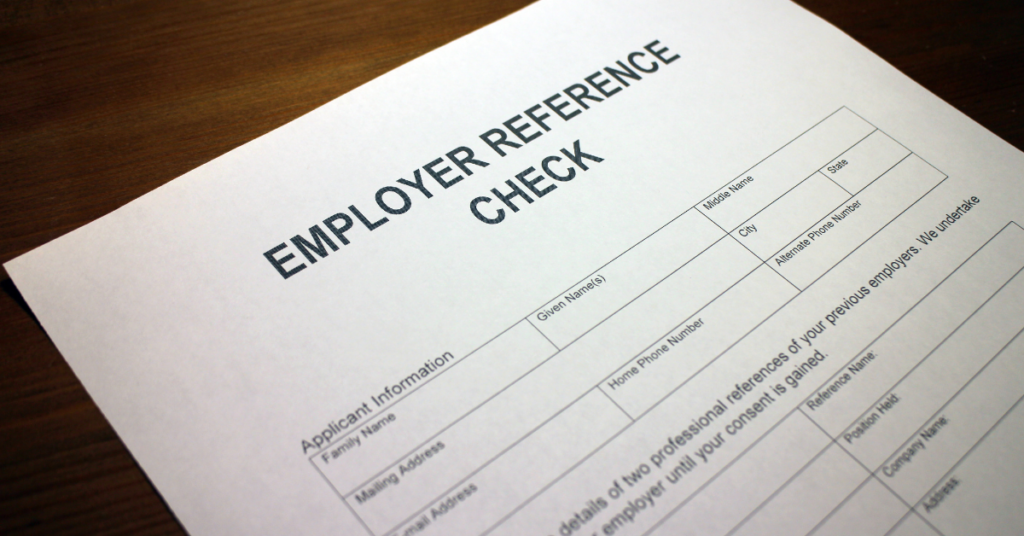The Value of References in a Job Search

Every time you embark on a new job search, you know you have to have the full package to catch eyes. But while your resume, personal statement, and other materials are a very important part of your application, having strong, positive professional references can be a secret power later on in the hiring process. Read on to learn about the value of references in a job search.
Why References are So Important
A frequently cited survey by the Society for Human Resource Management (SHRM) states that eight out of ten human resources professionals contact references for professional (89 percent), executive (85 percent), administrative (84 percent), and technical (81 percent) positions. Professional references have one primary role in your job application: to back up the claims you make about your skills and qualifications. You can do a lot to clearly inform potential employers of your experience and aptitude for the job, but having someone (or several people) to back you up adds weight to your claims.
In an interview, you can talk about your strengths and weaknesses and your values of teamwork and a diligent work ethic. But hearing from a professional reference allows recruiters and hiring managers to get another perspective on the qualities you would bring to the workplace.
Who to Choose as References
Professional references should be just that: managers, supervisors, or colleagues from your professional network. Typically, job applications ask for three references, and there are many possibilities for who you can ask. But there are also some people you should avoid asking to be your reference.
Who to Ask
- Managers or supervisors. Managers, supervisors, or other superiors are the most common people to choose as references. They will be able to vouch for you in ways that are specifically related to your work performance in your field. This includes your past experience and skills, reliability, job titles, and character.
- Peers or co-workers. Peers or co-workers can add a lot to your application by speaking about your ability to work in groups, your character and personality, and your role as part of a professional community.
- Teachers. If you don’t have much prior work experience, former or current teachers can be a great choice for a reference. Choose teachers who know you well, are familiar with your work, and have seen you rise to meet new challenges. Teachers are perceptive and can tell a lot about your work ethic, potential, and reliability based on your performance in their classes.
- Volunteer coordinators. Another great option if you do not have much prior work experience, coordinators for volunteer work or superiors in other unpaid circumstances can tell employers about your reliability and experience.
Who Not to Ask
- Family or close friends. It is important to avoid using family or close friends as references. They will probably say great things about you, but they have less credibility since they automatically have your best interest in mind and are likely unable to speak towards your performance at work.
- Current bosses or managers. If you do not want your current boss to know you are applying to a new job, it is okay to leave them off of your reference list. Potential employers will usually understand that you might need an official offer from them before informing your current employer of your application.
- People with whom you do not get along. If you have a rocky history with a supervisor or boss, they are probably not a great fit for a professional reference. You want to ensure that any information potential employers receive is positive and will not detract from your application.
What to Look for in a Reference
Choosing the right references will go a long way towards increasing your prospects for getting a new job. Below are some tips for choosing a reference that will strengthen your application.
- Knowledge of your past work experience. Employers need to confirm that the jobs, experiences, and titles you claim are valid. A reference can back up your statements by providing information about your prior work experience.
- Ability to describe your work ethic, punctuality, and reliability. Having a reference that can speak about your ability to meet deadlines, arrive on time, and follow through on your word is crucial.
- Experience working with you in group or team settings. Working as a team is a part of most jobs, and employers want to know whether you can be expected to work well in groups.
- Ability to speak about your personal character and professionalism. It is important for someone other than yourself to vouch for you as a professional worker with outstanding character.
- Consistent and clear communication skills. The last thing you want is a reference who is unresponsive or who lacks the communication skills to provide information to potential employers.
How to Ask a Reference
Once you’ve decided who you would like to use as a reference, be sure to ask their permission before including them on the application. Tell them a little bit about the job you are applying for, and why you are asking them specifically to be a reference. This ensures that they are not caught off guard, and that you’re on the same page about your qualifications for the job. If they agree, don’t forget to express your gratitude for their support!
